Gardening in Applecross: Cultivating Beauty in the Highlands
Introduction to Gardening in Applecross
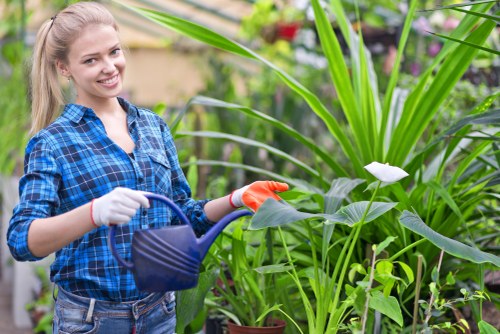
Applecross, located on the rugged west coast of Scotland's Northwest Highlands, offers a unique environment for gardening enthusiasts. With its stunning landscapes, temperate maritime climate, and rich soil, Applecross is an ideal location for cultivating a diverse range of plants. Whether you're a seasoned gardener or a hobbyist, gardening in Applecross presents both challenges and rewarding opportunities.
The region's climate, characterized by mild temperatures and abundant rainfall, supports a variety of flora. However, gardeners must also contend with strong winds and the occasional frost, which can impact plant growth. Understanding the local climate and choosing the right plants are crucial steps in creating a thriving garden in Applecross.
In this comprehensive guide, we will explore the best practices for gardening in Applecross, including soil preparation, plant selection, garden design, and maintenance tips. Additionally, we'll highlight the benefits of gardening in this picturesque area and provide insights into local gardening resources and communities.
Understanding the Applecross Climate
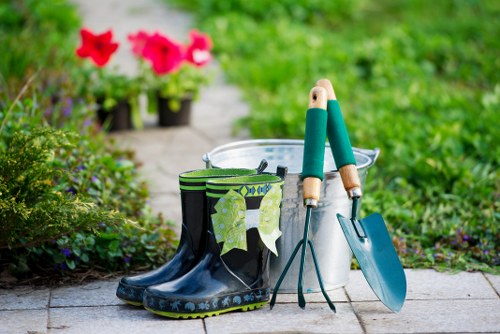
The climate in Applecross is classified as temperate maritime, which means it experiences mild winters and cool summers, with high levels of precipitation throughout the year. This climate is influenced by the North Atlantic Current, which brings warm air and moisture, creating ideal conditions for lush vegetation.
However, the frequent rainfall and cloudy skies can pose challenges for gardeners. To mitigate these issues, it's essential to implement proper drainage systems and select plant varieties that are resilient to damp conditions. Additionally, protective structures like greenhouses or row covers can help safeguard sensitive plants during harsher weather.
Understanding the seasonal variations in Applecross is also vital. Spring is marked by blossoming flowers and growing temperatures, making it a prime time for planting. Summer, while cooler than many regions, provides a longer growing season. Autumn brings harvesting opportunities, while winter requires careful planning to protect perennials and prepare the garden for the next planting cycle.
Soil Preparation for a Thriving Garden
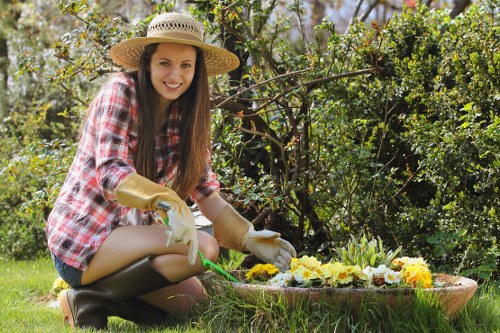
Healthy soil is the foundation of a successful garden. In Applecross, gardeners often deal with rocky terrain and acidic soil conditions. Conducting a soil test is the first step to understanding the pH levels and nutrient content of your garden soil.
To improve soil quality, consider adding organic matter such as compost or well-rotted manure. These materials enhance soil structure, increase fertility, and promote beneficial microbial activity. Additionally, incorporating lime can help neutralize soil acidity, creating a more favorable environment for a wider range of plants.
Proper soil preparation also involves ensuring good drainage. Amend heavy clay soils with sand or grit to prevent waterlogging, which can lead to root rot and other plant diseases. Raised beds are another effective solution, allowing for better control over soil composition and drainage.
Choosing the Right Plants for Applecross Gardens
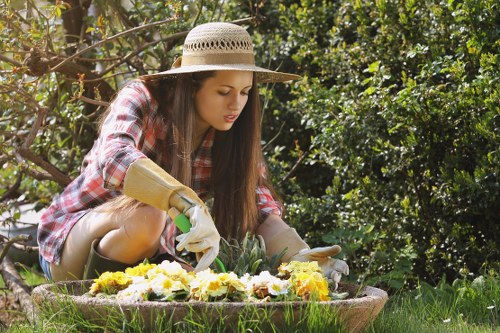
Selecting plants that thrive in Applecross's climate is essential for a successful garden. Native plants are often the best choice, as they are adapted to the local conditions and require less maintenance. Examples of native species include:
- Heather (Calluna vulgaris)
- Scots Pine (Pinus sylvestris)
- Heather (Erica cinerea)
- Bluebells (Hyacinthoides non-scripta)
- Primroses (Primula vulgaris)
In addition to native plants, consider cold-hardy vegetables and berries that can withstand the cooler temperatures and shorter growing seasons. Vegetables like kale, cabbage, and root vegetables perform well in Applecross gardens, while berries such as raspberries, blueberries, and blackberries add color and produce.
Flowering plants like rhododendrons, azaleas, and ornamental grasses can enhance the aesthetic appeal of your garden, providing year-round interest and attracting pollinators.
Garden Design and Layout

Effective garden design takes into account the natural landscape, sunlight patterns, and wind exposure typical of Applecross. Creating sheltered areas with windbreaks can protect delicate plants from strong gusts, while strategically placing structures like pergolas or arbors can provide shade and support for climbing plants.
Raised beds and container gardening are popular choices in Applecross, offering flexibility and improved soil control. They also make it easier to manage soil quality and drainage, essential factors in this region.
Incorporating water features such as ponds or birdbaths can enhance the garden's tranquility and attract wildlife. Additionally, pathways made from local stone or gravel can add texture and guide visitors through the garden.
Maintenance Tips for Applecross Gardens
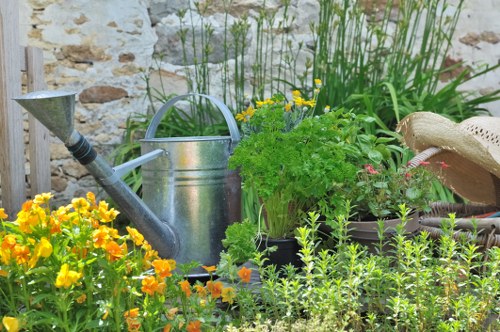
Regular maintenance is key to keeping your garden healthy and vibrant. In Applecross, this includes:
- Pruning dead or damaged branches to promote healthy growth
- Weeding consistently to prevent competition for nutrients
- Mulching to retain soil moisture and regulate temperature
- Monitoring for pests and diseases, and taking prompt action if issues arise
- Fertilizing periodically to replenish nutrients in the soil
Seasonal tasks such as planting in spring, harvesting in autumn, and preparing beds for winter also play a crucial role in maintaining garden health.
Implementing sustainable practices like composting and rainwater harvesting can reduce environmental impact and enhance soil fertility, contributing to a more resilient garden.
Local Gardening Resources and Communities

Applecross boasts a supportive gardening community with access to various resources. Local nurseries offer a wide selection of plants suited to the region's climate, while gardening clubs and societies provide opportunities for knowledge sharing and networking.
Workshops and seminars held throughout the year cover topics such as organic gardening, landscape design, and sustainable practices. These events are invaluable for both novice and experienced gardeners looking to enhance their skills.
Additionally, online forums and social media groups dedicated to Applecross gardening allow enthusiasts to connect, share tips, and showcase their gardens.
Gardening Challenges in Applecross
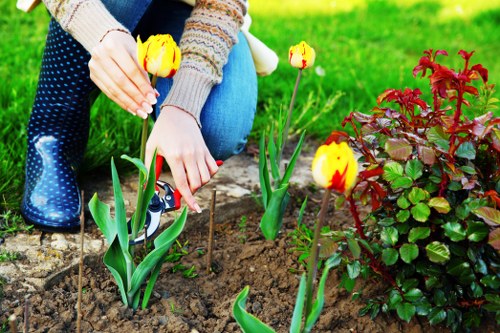
Gardening in Applecross comes with its unique set of challenges. The high rainfall can lead to soil erosion and plant diseases, necessitating robust drainage solutions and regular plant health monitoring.
Windy conditions require the use of windbreaks and sturdy plant supports to prevent damage. Selecting disease-resistant plant varieties can also reduce the impact of common garden ailments.
The relatively short growing season means that gardeners must plan carefully, selecting fast-growing or early-maturing plants to maximize productivity.
Benefits of Gardening in Applecross
Despite the challenges, gardening in Applecross offers numerous benefits. The therapeutic effects of gardening can enhance mental well-being, providing a sense of accomplishment and connection to nature.
The region's abundant rainfall ensures that plants receive ample water, reducing the need for irrigation and promoting healthy growth. Additionally, the diverse plant life supports local biodiversity, attracting birds, insects, and other wildlife.
Creating a garden in Applecross also contributes to the region's natural beauty, enhancing property values and providing a peaceful sanctuary amidst stunning landscapes.
Seasonal Gardening in Applecross
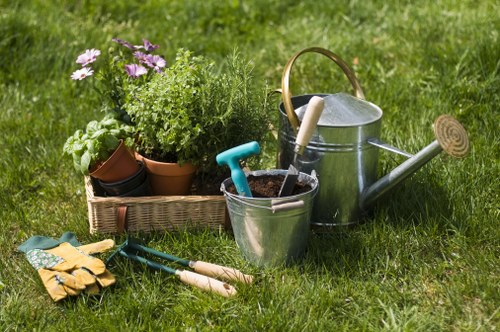
Understanding the seasonal dynamics is essential for year-round gardening success in Applecross:
- Spring: Planting new seeds, preparing beds, and pruning shrubs.
- Summer: Maintaining plants through watering, weeding, and harvesting crops.
- Autumn: Harvesting remaining produce, leaf management, and preparing for winter.
- Winter: Protecting perennials, planning for the next season, and focusing on indoor gardening.
Each season offers unique opportunities to cultivate and enjoy different aspects of your garden, ensuring continuous growth and beauty throughout the year.
Sustainable Gardening Practices
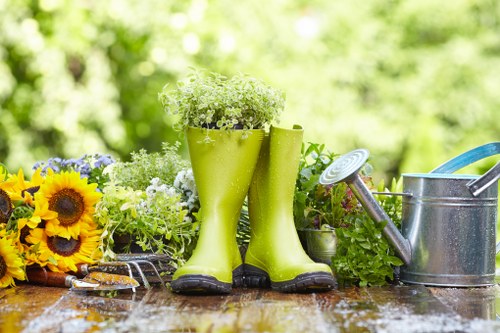
Adopting sustainable gardening practices in Applecross not only benefits your garden but also contributes to environmental conservation:
- Composting: Recycling organic waste to create nutrient-rich soil amendments.
- Rainwater Harvesting: Collecting and utilizing rainwater for irrigation purposes.
- Native Planting: Choosing native species to support local ecosystems and reduce maintenance.
- Organic Pest Control: Using natural predators and organic solutions to manage pests.
- Mulching: Applying organic mulch to conserve moisture and suppress weeds.
Implementing these practices ensures a healthy, resilient garden while minimizing environmental impact.
Enhancing Your Garden with Local Flora
[IMG_11]Incorporating local flora into your garden design can enhance its aesthetic appeal and support the local ecosystem. Plants such as heather, rhododendrons, and native wildflowers add color and texture, creating a visually appealing landscape.
Additionally, flowering plants attract beneficial insects like bees and butterflies, promoting pollination and natural pest control. Integrating a variety of plant species ensures a balanced and thriving garden environment.
Using local materials for garden structures, pathways, and decorations can also create a harmonious blend with the surrounding landscape, emphasizing the natural beauty of Applecross.
Gardening Tools and Equipment
[IMG_12]Having the right tools and equipment is essential for efficient gardening in Applecross. Some must-have items include:
- Sturdy gloves to protect your hands
- Reliable pruning shears for maintaining plants
- A durable spade and shovel for soil preparation
- Watering cans or hoses with adjustable nozzles
- A wheelbarrow for transporting materials
- Quality fertilizers and soil amendments
- Protective gear like hats and knee pads
Investing in high-quality tools ensures longevity and enhances your gardening experience, making tasks easier and more enjoyable.
Seasonal Planting Calendar
[IMG_13]Creating a seasonal planting calendar helps plan your gardening activities throughout the year. Here's a basic outline for Applecross:
- January-February: Plan garden layout, order seeds, and prepare indoor planting areas.
- March-April: Start sowing seeds indoors, prepare beds, and plant early crops outdoors.
- May-June: Transplant seedlings, plant summer vegetables, and maintain garden beds.
- July-August: Harvest crops, manage pests, and prepare for autumn planting.
- September-October: Plant hardy perennials, compost garden waste, and protect plants from frost.
- November-December: Focus on indoor gardening, clean and store tools, and plan for the next season.
Adhering to a planting calendar ensures timely cultivation and maximizes garden productivity.
Integrating Wildlife into Your Garden
[IMG_14]Creating a wildlife-friendly garden in Applecross enhances biodiversity and adds dynamic elements to your garden. Consider the following tips:
- Plant a variety of flowers to attract pollinators like bees and butterflies.
- Install birdhouses and feeders to encourage bird activity.
- Create habitats for beneficial insects and small mammals.
- Incorporate water features to provide drinking spots for wildlife.
- Use native plants to support local fauna and promote ecological balance.
By fostering a habitat for wildlife, your garden becomes a vibrant ecosystem, contributing to environmental sustainability and enjoyment.
Local Gardening Events and Workshops
[IMG_15]Participating in local gardening events and workshops can enhance your gardening knowledge and connect you with like-minded individuals. Applecross hosts various events throughout the year, including:
- Spring planting fairs showcasing native species
- Workshops on sustainable gardening practices
- Gardening competitions and garden tours
- Seminars on pest management and soil health
- Community gardening days for collaborative projects
These events provide valuable opportunities to learn, share experiences, and stay updated on the latest gardening trends and techniques.
Conclusion: Embrace Gardening in Applecross
[IMG_16]Gardening in Applecross is a fulfilling endeavor that offers both aesthetic and environmental benefits. By understanding the local climate, preparing the soil adequately, selecting appropriate plants, and adopting sustainable practices, you can create a thriving garden that complements the breathtaking Highland landscape.
Engage with the local gardening community, utilize available resources, and continuously educate yourself to overcome challenges and enhance your gardening experience.
Ready to transform your Applecross garden? Contact us today to learn more about our gardening services and start cultivating your own piece of paradise in the Highlands.
